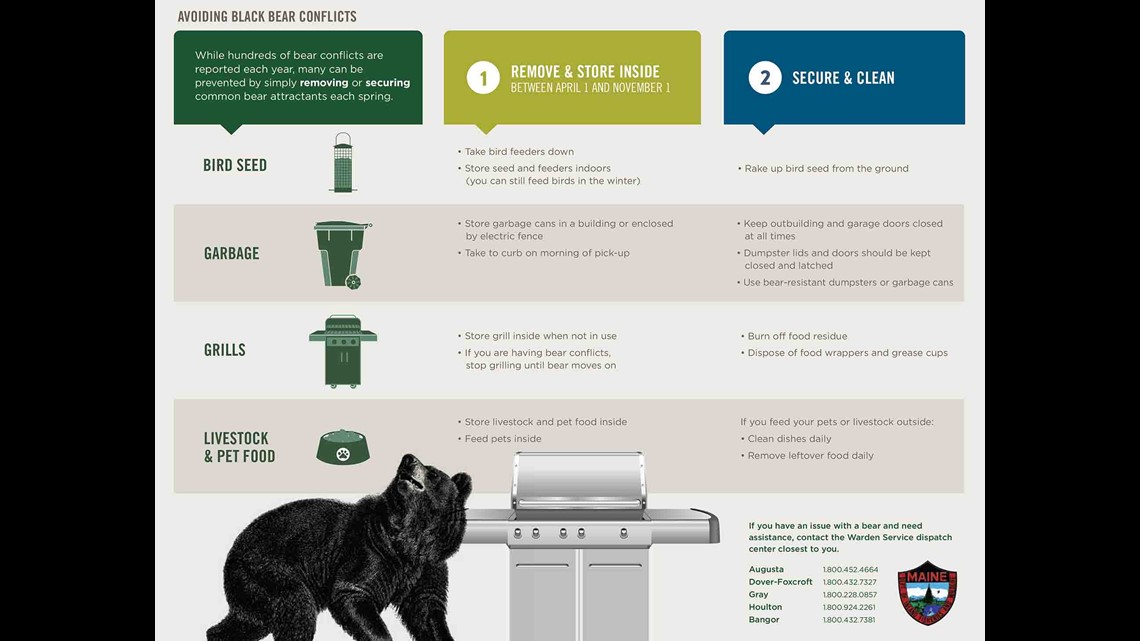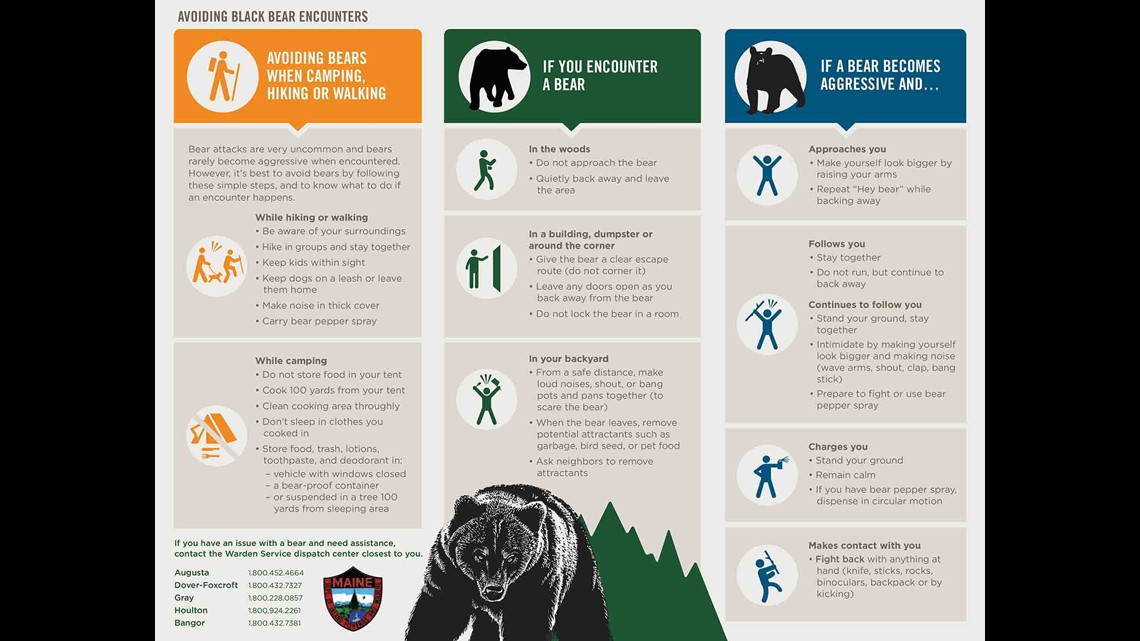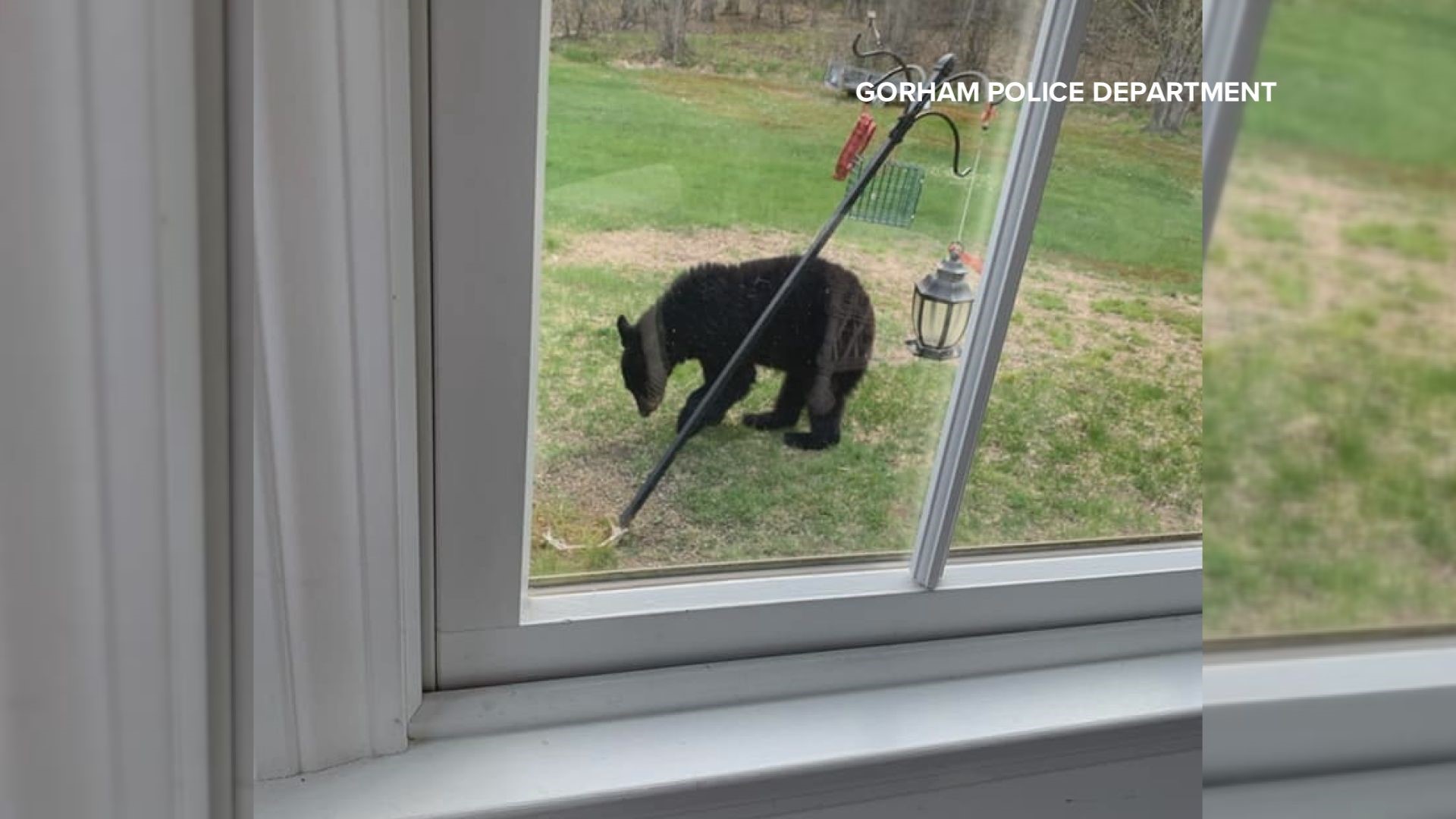MAINE, USA — Editor’s note: You've probably heard the term ‘flattening the curve’ as a way to stem the tide of coronavirus cases. The above video explains what that means.
Black Bear sightings in Maine in April, May, and June are not uncommon, but the sight of one can certainly be unexpected.
"It's unsettling to look out your window and see a bear in your backyard," said Falmouth Police Chief John Kilbride.
"We've had some sightings around Falmouth Rd, Bucknam Rd. One knocked over a bird feeder, one went after a bees nest, grabbed the honey".
The bears are hungry.
"When they emerge from their winter den they have no fat reserves so they're really hungry," said Maine Biologist Jennifer Vachon with the Maine Department of Inland Fisheries & Wildlife.
RELATED: Police alert public of bear poking around Portland neighborhood, adding to multiple recent reports
Vachon says bears have a big appetite---and this year that's a big problem.
"There is isn't a lot of natural foods out there for black bears and so they're going to take a few more risks this time of year than they normally would."
Like sneaking into your back yard to check out your bird feeder.
"Birdseed is really energy-rich for black bears this time of year," said Vachon.
Bears also think your trash is pretty tasty, too.
"They are really good at getting into people's garbage."


Bear sightings in more populated areas are a little more unusual. Vachon says it may simply be because people are home more because of the pandemic, and there is less natural food for them than in previous years.
"That's because natural foods tend to fluctuate. Typically in an odd year, we have an abundance of natural food and in even years we tend to have less. It just seems to follow a cycle. A lot of our nut crop is a two-year cycle and moisture plays a big role."
Vachon also points out that Maine's black bear population is growing 2 to 4 percent annually.
"Bears will become more commonplace in places we're not used to seeing them. We estimate that we have over 35,000 black bears in the state right now."
Normally bear complaints start in April when bears emerge from their den, they start to increase in May and peak in June.
"In a really bad food year when there is not a lot of natural foods, we might get as many as 300 bear complaints in the month of June alone."


If you encounter a black bear Vachon says don't approach it, just back up and never run away.
"Bears are pretty well behaved in the east but they are a wild animal and they have potential to cause harm so you have to keep that in perspective."
And if you don't bears in your yard at all Vachon recommends keeping trash cans inside and not putting them out until the morning of trash pick up. She also says advises bringing in your bird feeders from April 1st to November 1st while bears are most active.
RELATED: Rescue organizations warn about selling pets out of 'desperation' amid coronavirus, COVID-19

